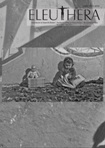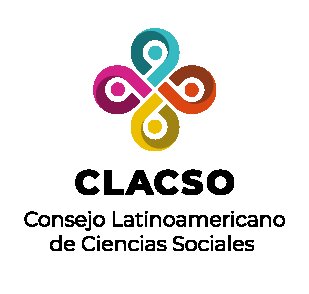Authors
Abstract
Abstract: The article approaches, epistemologically, the complexity of the curriculum in Social Work, which constitutes the core synthesis that mediates between vita contemplativa and vita activa (Arendt H., 1993). It is an invitation to come closer to the disciplinary spirit that, according to Hegel, germinates in the conscience of an idea before a world in which, from the most basic thing to the most absolute thing, Social Workers have commited historically. It demands from us to assume the disposition to conceive our symbolic and material cosmology in the contemporary social scenarios, as well as in the dense space of the social sciences, bifurcating a common crossing place between them. In the above mentioned collision we have to articulate those substantive and factual elements of our investigations/interventions, which are the ones that, ultimately, account for our existence as being-in-itself and being-for-theworld, that is to say, as a historical-procedural, theoretical-methodological, ethical-political and Critical-ideological project. For the same reason, we reinforce the premise that disciplinary matters must be observed from a second generation, in the depth of a game of images keen of voices, whose dialectical and dialogical configurations penetrate the eidetic representations, granting them a tangible eloquence, demonstrated through those debates in which we are capable of making circulate words that name our reality in the social reality, revealing grammar and semantics traits that, every moment, claim to elucidate the disciplinar statute of Social Work.
References
_________________. (2005). Dialéctica negativa. La jerga de la autenticidad. Madrid: Ediciones Akal.
Arendt, Hannah. (2001) Hombres en tiempos de oscuridad. Barcelona: Editorial Gedisa.
_____________ (1995) De la historia a la acción. Barcelona: Paidós.
_____________ (1993) La condición humana. Barcelona: Paidós.
Arendt, Hannah. (1984) La vida del espíritu: el pensar, la voluntad y el juicio en la filosofía y en la política. Madrid: Centro de Estudios Constitucionales.
Austin, John L. (1982). Como hacer cosas con palabras. Barcelona: Paidós.
Barcena, Fernando. (2006) Hannah Arendt: una filosofía de la natalidad. Barcelona: Editorial Herder.
Benjamín, Walter (2008). Tesis sobre la historia y Otros fragmentos. Buenos Aires: Ediciones Plaza.
______________ (2002). La dialéctica en suspenso. Fragmentos sobre la historia. Buenos Aires: Ediciones Plaza.
Foucault, Michel. (1995). Las palabras y las cosas. México D.F: Editores Siglo XXI.
______________. (1992). Microfísica del poder. Madrid: Ediciones de la Piqueta.
Gadamer, Hans-Georg. (2004) Hermenéutica de la modernidad. Conversaciones con Silvio Vietta. Madrid: Editorial Trotta S.A.
______________. (2002) Verdad y método. Salamanca: Editorial Sígueme.
Galende, Federico. (2009) Cultura Experiencia y Acontecimiento. Santiago de Chile, Ediciones Metales Pesados.
Hegel, George W. (2004) Introducción a la historia de La filosofía. Buenos Aires: Ediciones Libertador.
Heidegger, Martín. (2005) ¿Qué significa pensar?. Buenos Aires: Ediciones Terramar.
______________. (2003) Introducción a la metafísica. Barcelona: Editorial Gedisa.
______________. (1998) Ser y tiempo. Santiago de Chile: Editorial Universitaria.
______________. (1994) Conferencias y artículos. Madrid: Editorial del Serbal.
Heller, Agnes. (1998) Sociología de la vida cotidiana. Barcelona: Ediciones Península.
Horkeimer, Max (2002). Crítica de la razón instrumental. Madrid: Editorial Trotta.
Husserl, Edmund. (1992). Ideas relativas a una fenomenología pura y a una filosofía fenomenológica. México, D.F: Fondo de cultura económica.
Larraín, Jorge. (2007). El concepto de ideología: el marxismo posterior a Marx: Gramsci y Althusser. Santiago de Chile: Ediciones LOM.
Marcuse, Herbert (1993). El hombre unidimensional: ensayo sobre la ideología de la sociedad industrial avanzada. Buenos Aires: Editorial Planeta, S. A.
Marx, Karl & Engels, Friedrich. (2005). El manifiesto comunista. Madrid: Editorial Turner. Ricoeur, Paul. (2009). Sobre la traducción. Buenos Aires: Paidós.
______________. (2008a) El Conflicto de las Interpretaciones. Ensayos de hermenéutica. Buenos Aires: Fondo de cultura económica.
______________. (2008b) La memoria, la historia y el olvido. Buenos Aires: Fondo de cultura económica.
Sarlo, Beatriz. (2007) Siete ensayos sobre Walter Benjamin. Buenos Aires: Fondo de cultura económica.
Vattimo, Gianni. (2002) Diálogo con Nietzsche: ensayos 1961 – 2000. Barcelona: Editorial Paidós.
Vial Larraín, Juan. (2006) La Vía de la verdad: el discurso de la metafísica. Santiago de Chile: Ediciones Universidad Católica de Chile.
Yáñez Pereira, Víctor R. (2009). Ensayos en torno al Trabajo Social. Buenos Aires: Editorial Espacio.
______________. (2007). Visibilidad/invisibilidad del Trabajo Social: los fundamentos de una cosmología disciplinaria. Buenos Aires: Editorial Espacio.

 PDF (Español)
PDF (Español)
 FLIP
FLIP
























